Interstellar was not Christopher Nolan’s highest-grossing or best-reviewed movie, but it is up there. It had a worldwide box office total of over $700 million and a Rotten Tomatoes score of 72%.
A lot of critics’ problems with the movie involved its scope, with some of them feeling that Nolan had finally found a concept that was so big that it was out of his grasp: the future of humanity. But as a sci-fi epic with existential themes, it still stands up. Here are 15 quotes from the movie that will make you think.
Updated on December 25th, 2020 by Mark Birrell: Interstellar is such a huge movie, packed with so many ideas and dramatic scenes, that our list couldn't be limited to just the top 10 quotes. Accordingly, we've added an extra 5 to get fans' brains working again on the mind-blowing concepts contained in the sci-fi story. It's unlikely that fans will ever get to see a sequel to the movie, but there's more than enough thought-provoking material to be found in rewatch after rewatch and these moments are a great place to start unpacking Interstellar's biggest ideas.
15 You said science was about admitting what we don't know.
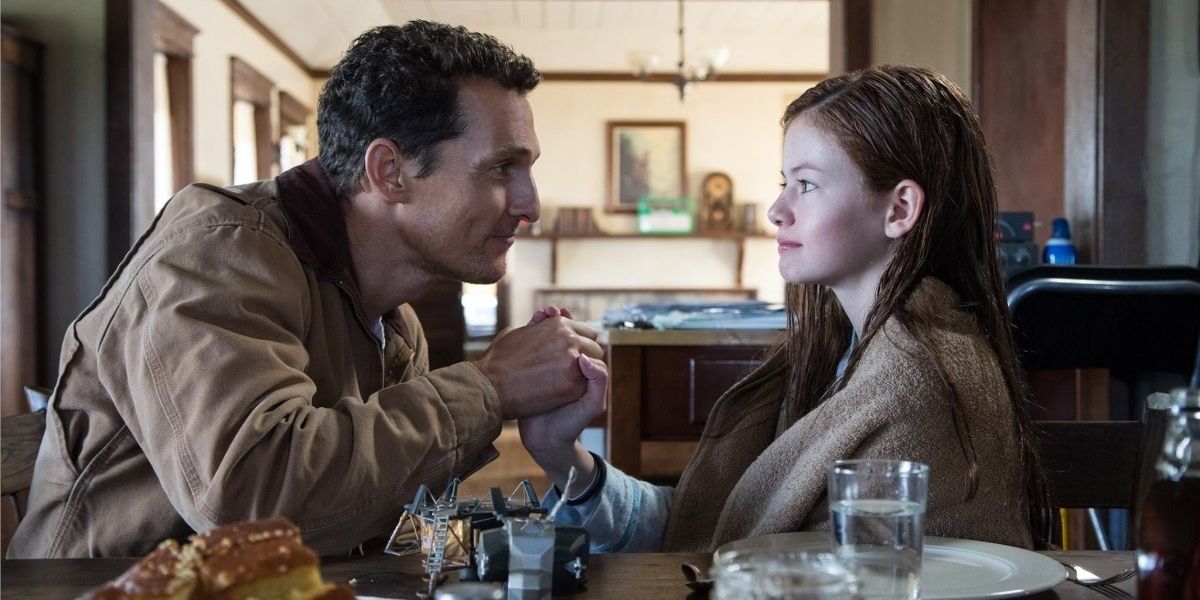
Joseph Cooper's relationship with his daughter, Murphy, forms the foundation of what Interstellar is all about, and the ways in which they inspire each other to do good things begins and ends with Murphy's trusting nature towards her father.
The knowledge passed between parent and child in the movie cuts both ways, as this quote of Murphy reminding Coop of an important thing that he once told her so clearly shows.
14 We didn't run out of television screens and planes, we ran out of food.
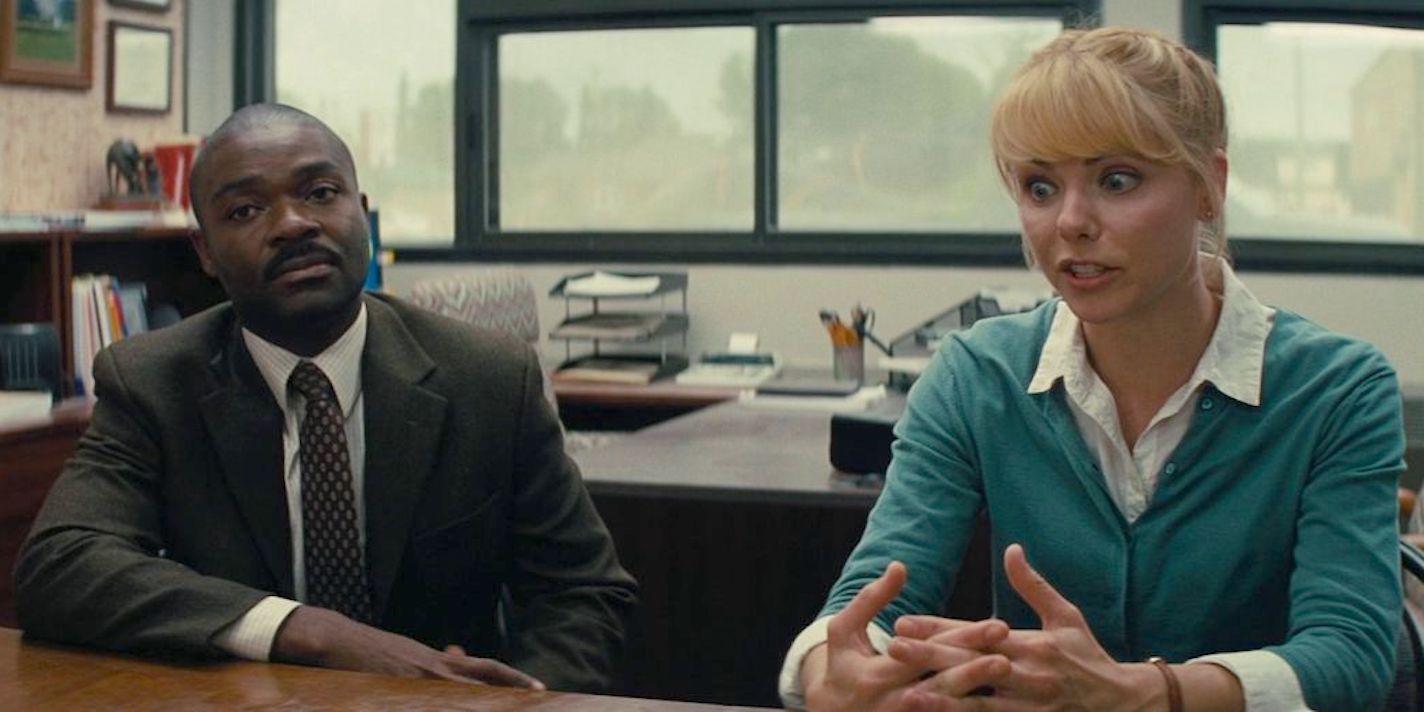
There are a number of interesting ideas espoused throughout Interstellar and not just from characters who work in some kind of scientific field.
Even though some characters' beliefs and actions aren't heroic or even cast in a positive light, they are still reasoned by the characters themselves. The teachers at Cooper's local high school, for example, are somewhat villainous and ignorant yet have a logic behind their policies. Here, David Oyelowo's character reminds Cooper why farmers have become more important than engineers in their world.
13 Don't trust the right thing done for the wrong reason. The why of the thing, that's the foundation.
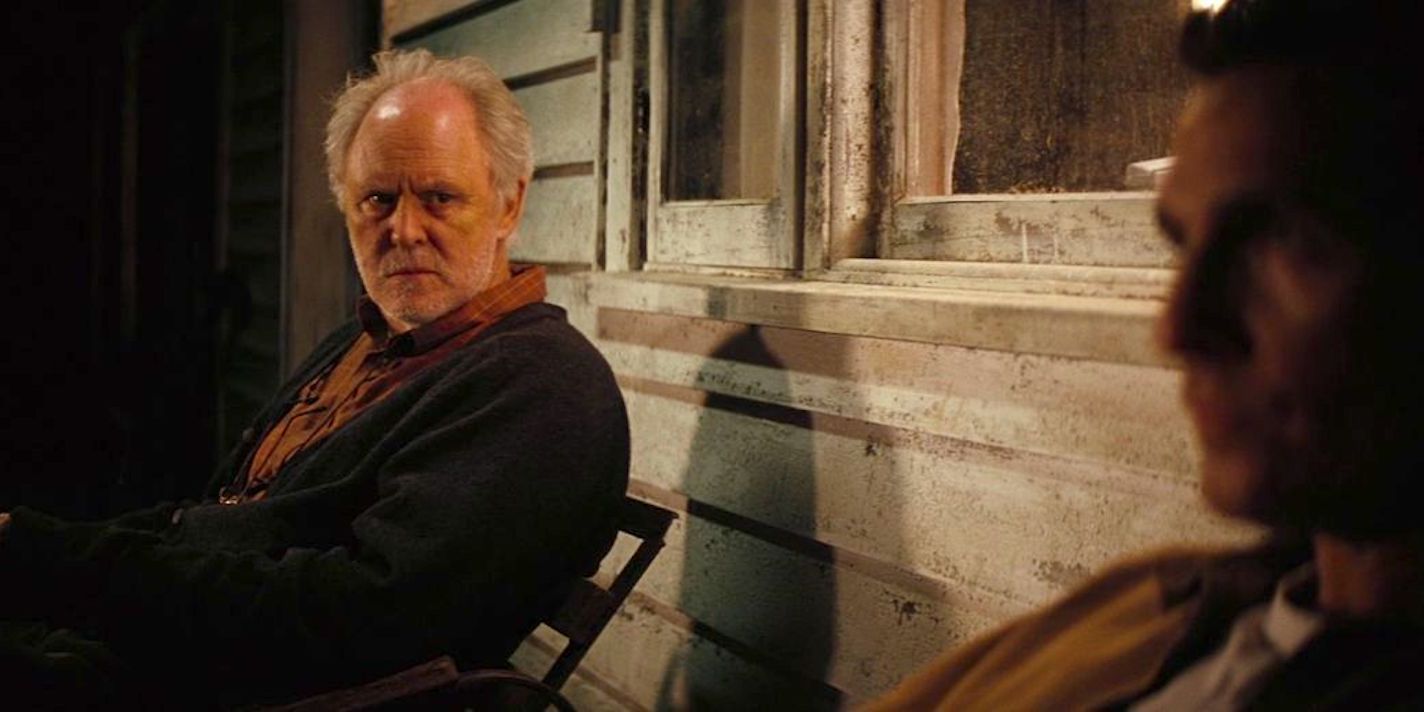
Cooper's father-in-law, Donald, provides an interesting counterbalance to Cooper's wide-eyed star-gazing with a realistic approach to life that keeps Coop more grounded.
His character, though not as prominent as many other supporting roles, is an interesting juxtaposition to other authority figures throughout the story such as Michael Caine's seemingly wise Dr. Brand or Matt Damon's ultimately villainous Dr. Mann, whose big words turn out to be not much more than lies.
12 Accident is the first building block of evolution.
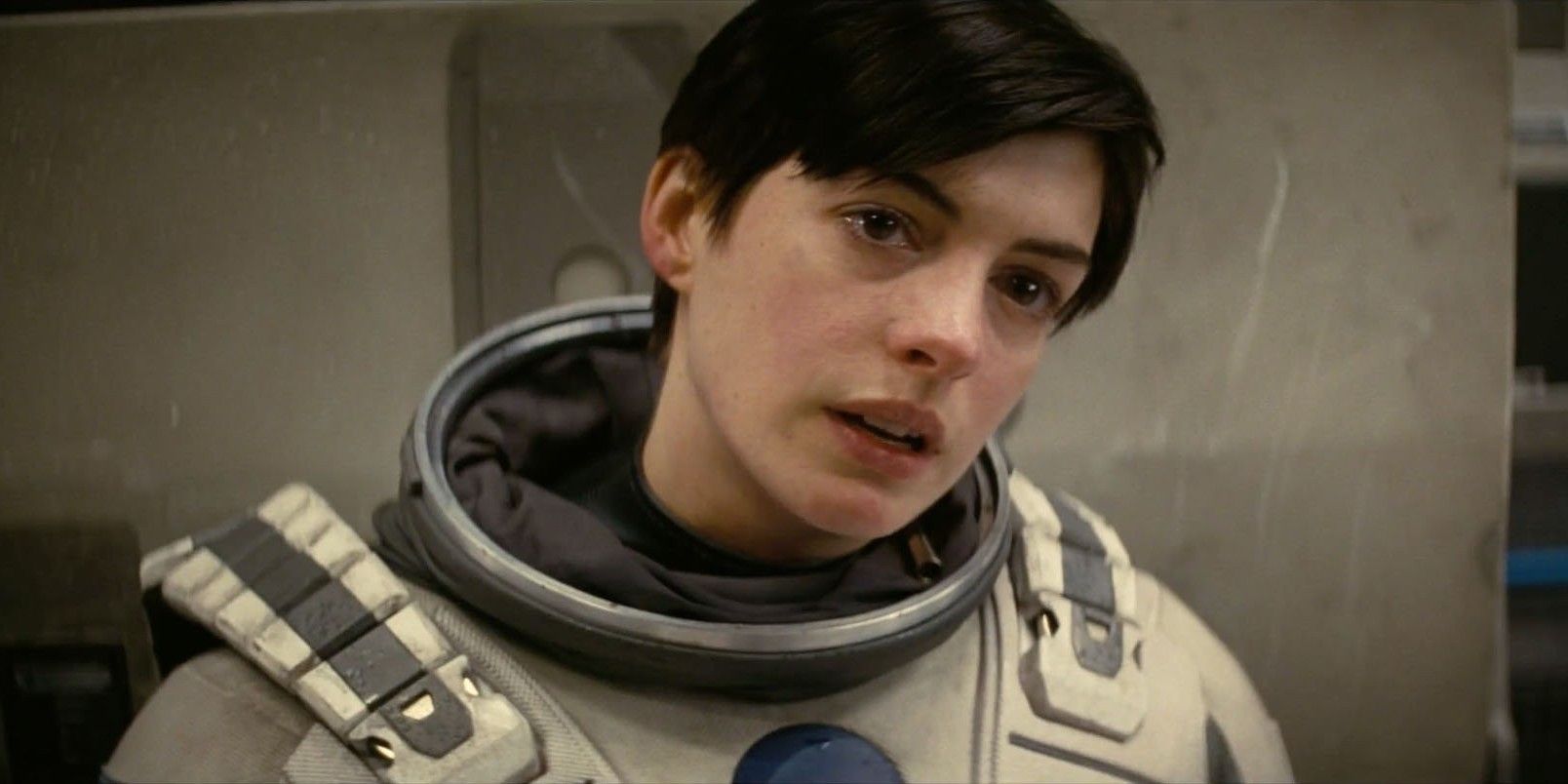
Many mistakes happen throughout Interstellar's story, and many characters feel deep regret over their actions and the ways in which things turn out. Yet, it all comes good in the end, and humanity not only survives but changes into something potentially greater.
Anne Hathaway's Amelia Brand reminds the audience of the scientific principle behind this as she explains why the presence of a black hole has prevented certain worlds near it from becoming habitable by humans. Without things like asteroids, that would have been sucked into the black hole, the planets haven't had the same kind of transformative events as Earth.
11 Our survival instinct is our single greatest source of inspiration.
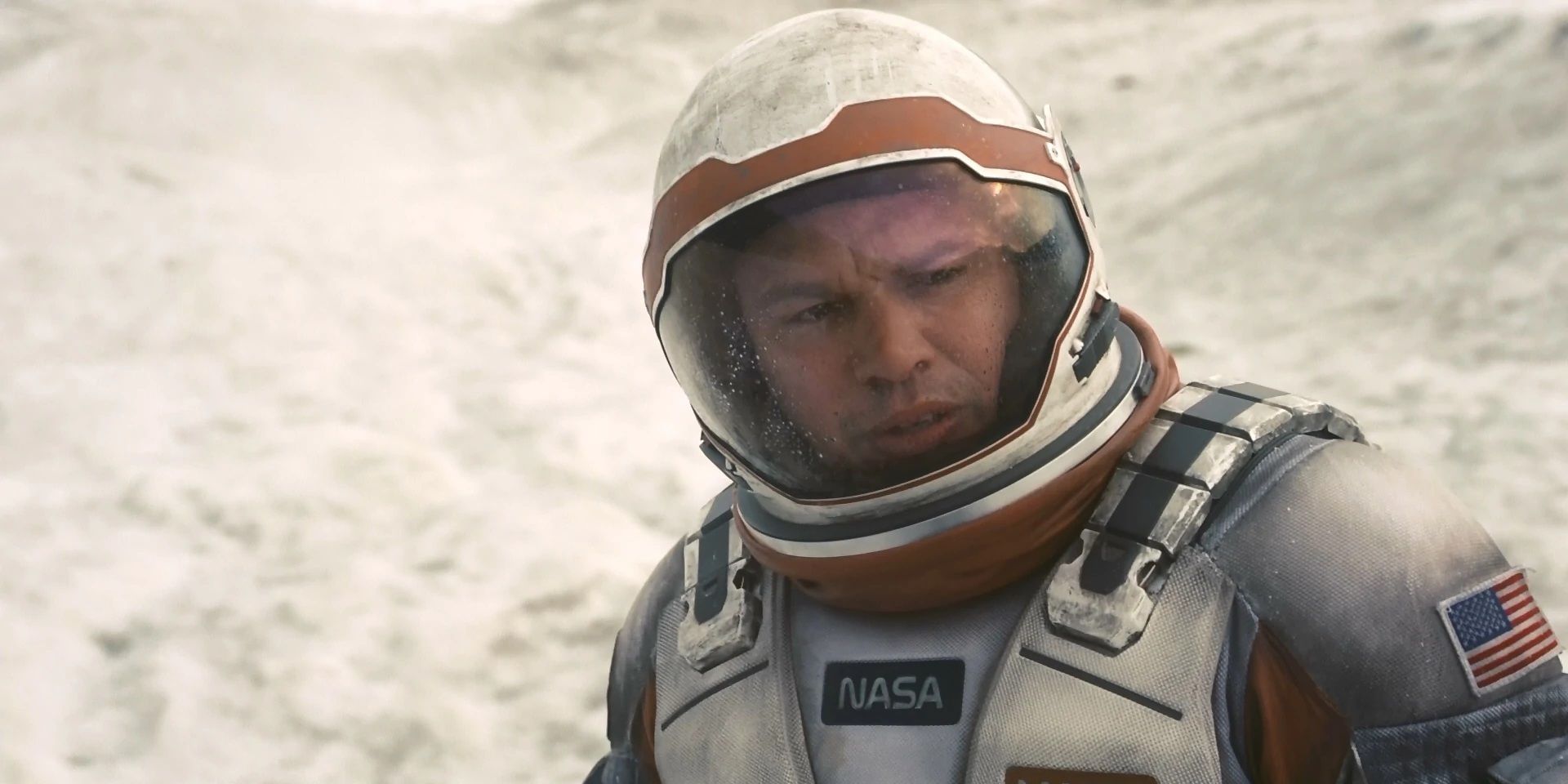
Though he's ultimately revealed to be psychotic, Dr. Mann is fittingly convincing as a hopeful and selfless astronaut until he shows his true colors.
This quote comes as he explains to Cooper why robots weren't sent on the movie's perilous colonization missions. He says that their lack of a fear of death prevents them from performing well in situations that require improvisation. Similar to Brand's observation above, it reminds the audience that struggle is what breeds greatness.
10 You Might Have To Decide Between Seeing Your Children Again And The Future Of The Human Race.
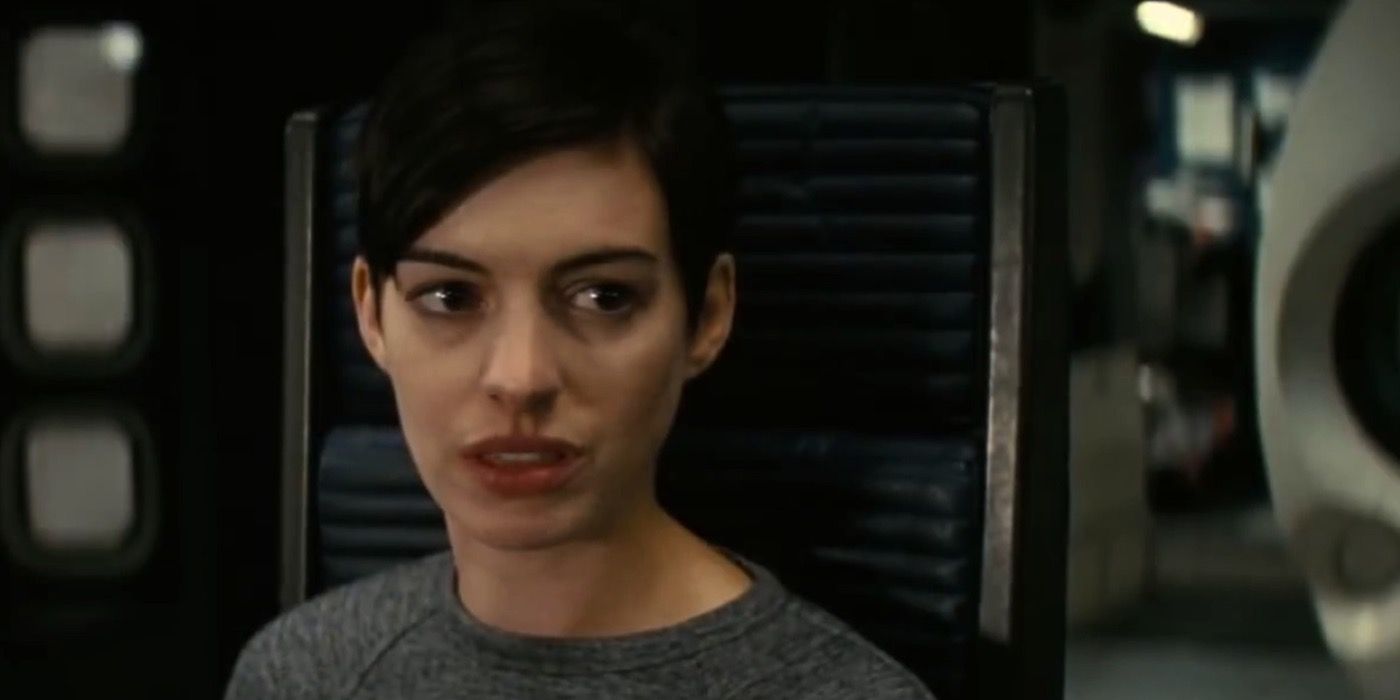
Drama is all about stakes, and these stakes laid out by Amelia Brand in Interstellar are about as high as they get.
This is maybe the most difficult decision a person could be expected to make: abandon your family or abandon your species? The gravity of the movie’s premise and its characters’ mission sets in with this quote.
9 We Must Reach Far Beyond Our Own Lifespans.
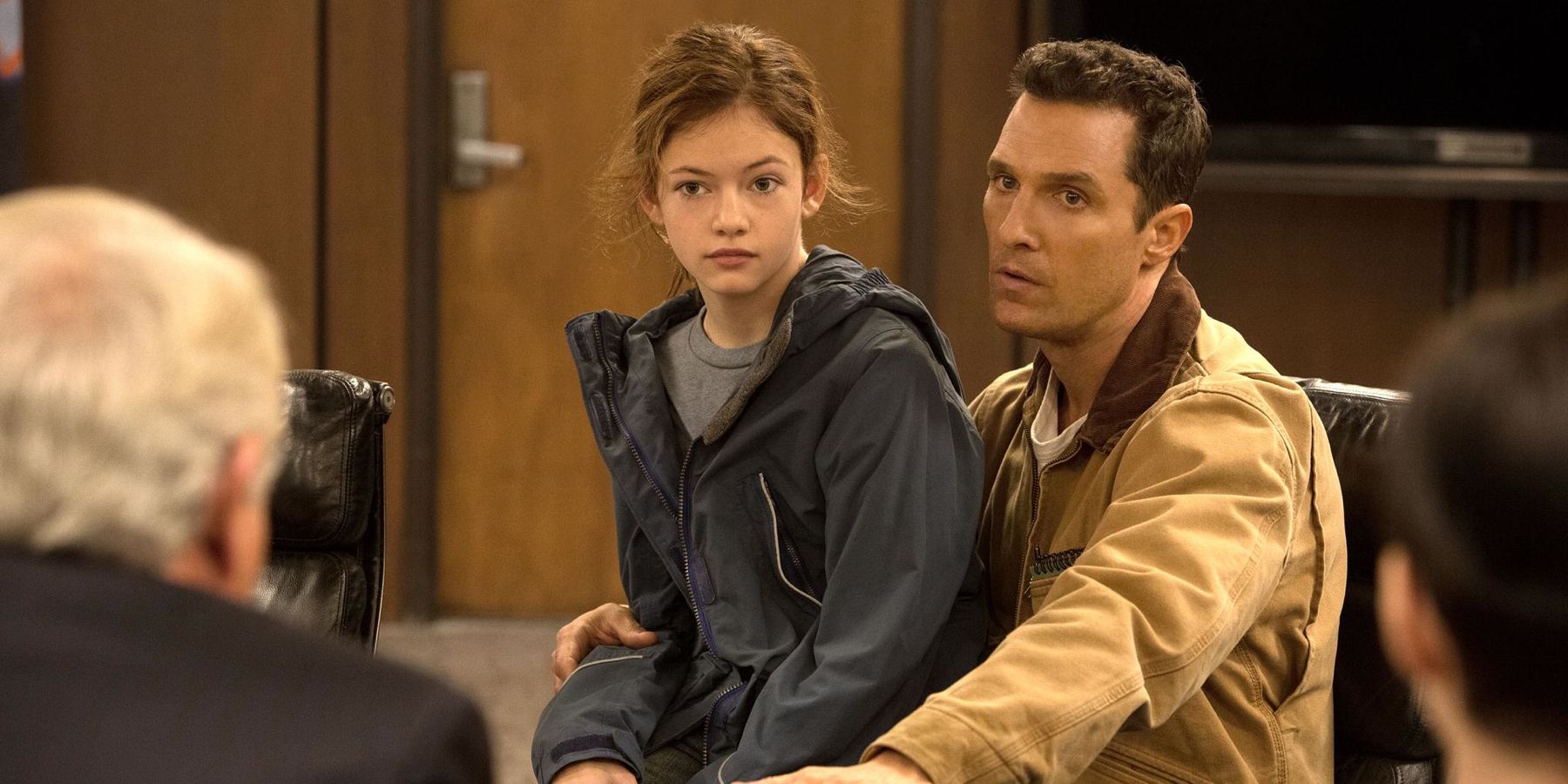
Whenever Cooper and Dr. Brand converse in the film, we see a meeting of two great minds with conflicting ideas. Dr. Brand tells Cooper early in the film. “We must confront the reality that nothing in our solar system can help us...We’re not meant to save the world. We’re meant to leave it, and this is the mission you were trained for.” Cooper says, “I’ve got kids, Professor,” and Dr. Brand tells him:
Then get out there and save them. We must reach far beyond our own lifespans. We must think not as individuals but as a species. We must confront the reality of interstellar travel.
With climate change, this movie has retroactively become a timely cautionary tale.
8 Murphy’s Law Doesn’t Mean That Something Bad Will Happen. It Means That Whatever Can Happen Will Happen.
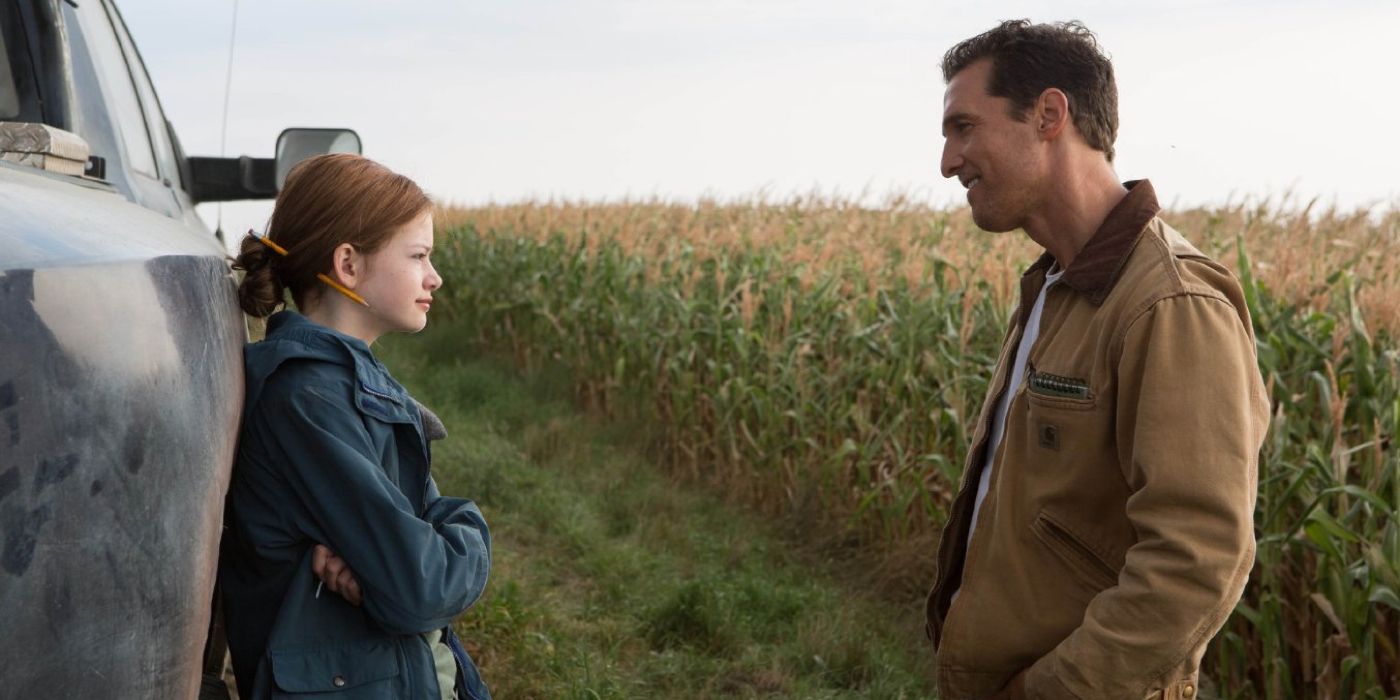
A lot of viewers found it unusual that Cooper’s daughter was called Murphy, as Murphy is typically a surname. However, in the context of the movie, Cooper and Murph’s late mother had a good reason to call her that.
They named her after Murphy’s law, the philosophical idea that if something can happen, it will happen. At one point, Murph asks her dad, “Dad, why did you and Mom name me after something that’s bad?” Cooper explains that Murphy’s law isn’t a bad thing. So, really, Murph is named after something completely neutral.
7 I Have A Cue Light I Can Use To Show You When I’m Joking, If You Like.
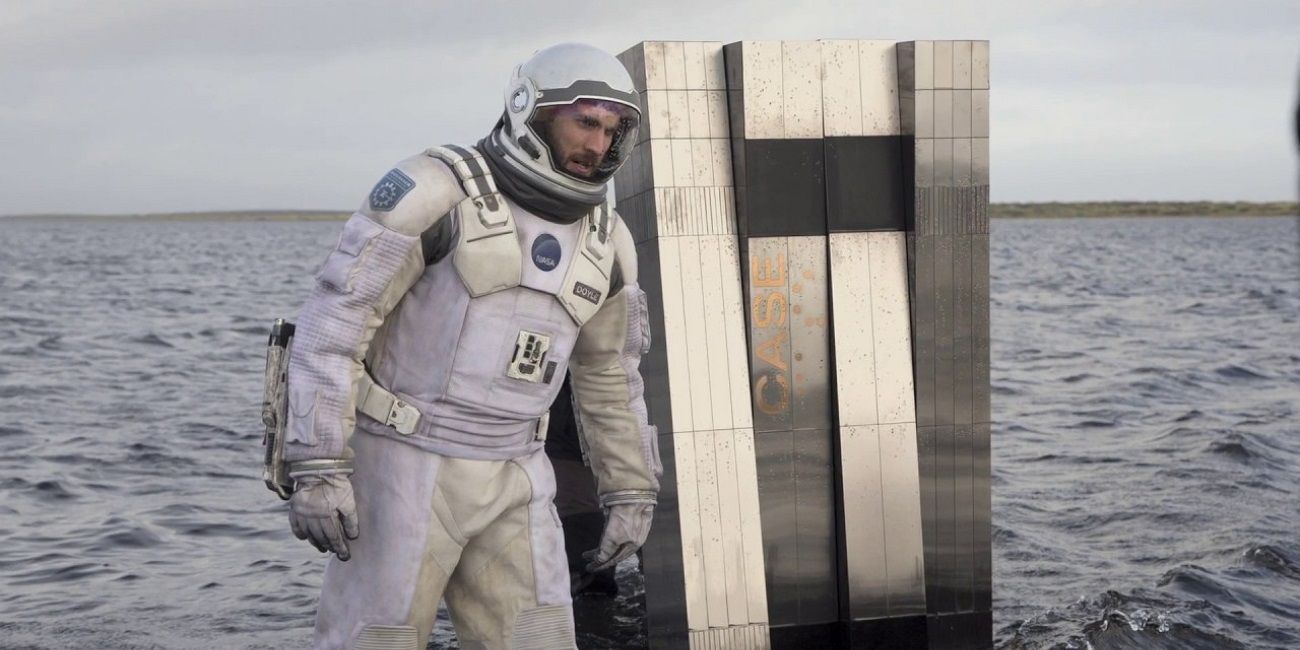
TARS isn’t included on as many lists of the best movie robots as he deserves to be. He’s up there with C-3PO and HAL 9000 with the perfect blend of robotic realism and unique personality. TARS is believable as an A.I. as opposed to a sentient human, yet he does have some funny lines.
A cue light to indicate that a joke is being told is probably something that’ll exist in a few years. We already know that A.I.s can be programmed to write jokes and stories based on the established formulas, so this isn’t far off being a reality. In the age of social media, a signal to indicate sarcasm sounds like a great idea.
6 Once You’re A Parent, You’re The Ghost Of Your Children’s Future.
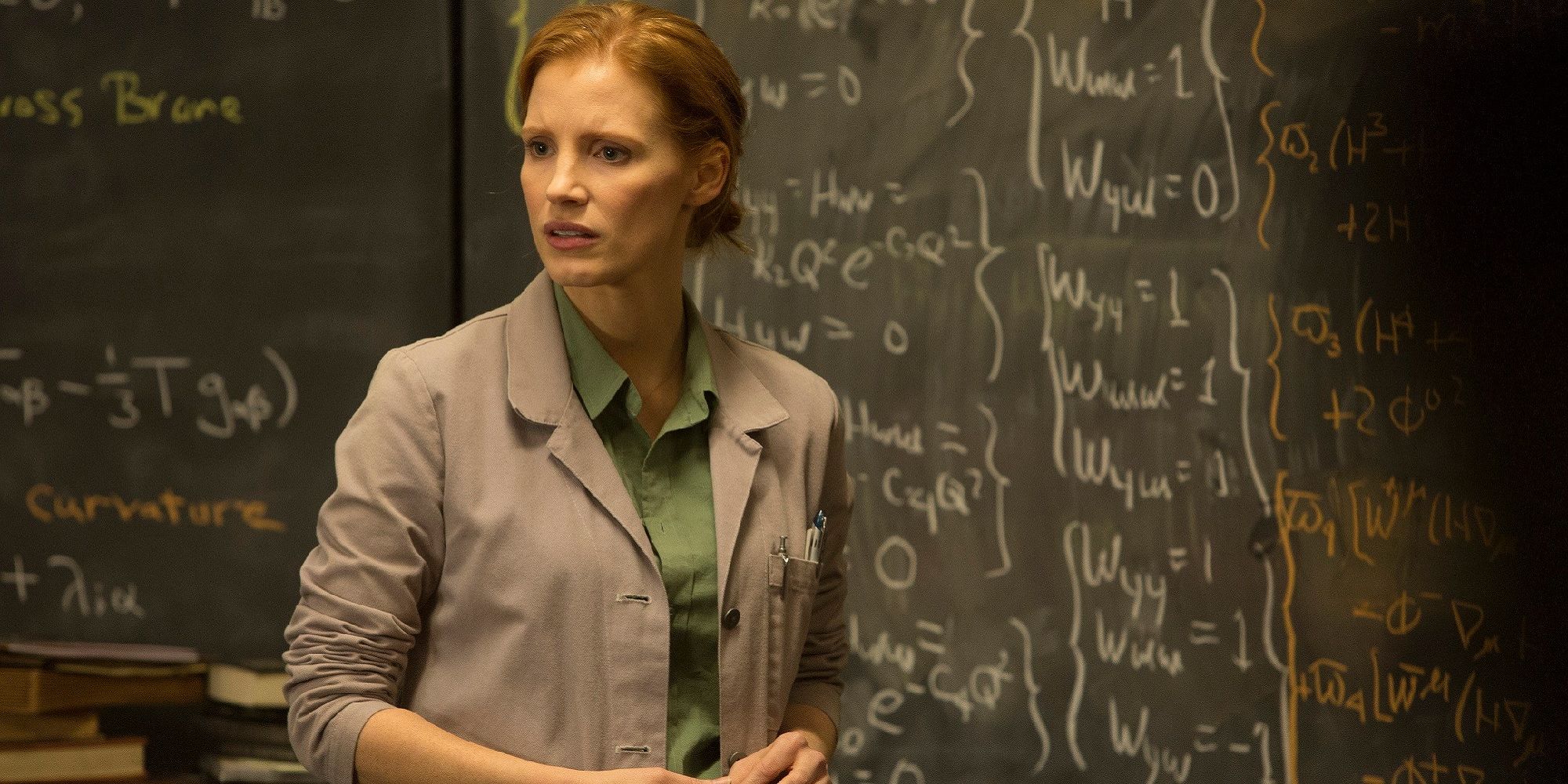
Christopher Nolan has said that his intention with Interstellar was to make a science fiction epic from the point of view of a family, akin to Steven Spielberg’s Close Encounters of the Third Kind. Funnily enough, Interstellar was originally conceived and developed by Steven Spielberg before the project was sold off and Nolan became attached and made it his own.
While the director's cold, calculated, and Kubrickian visual style means Interstellar is very distinctly a Nolan film, the Spielbergian family angle is still there. Those themes are summed up perfectly in this entry's quote.
5 Mankind Was Born On Earth. It Was Never Meant To Die Here.
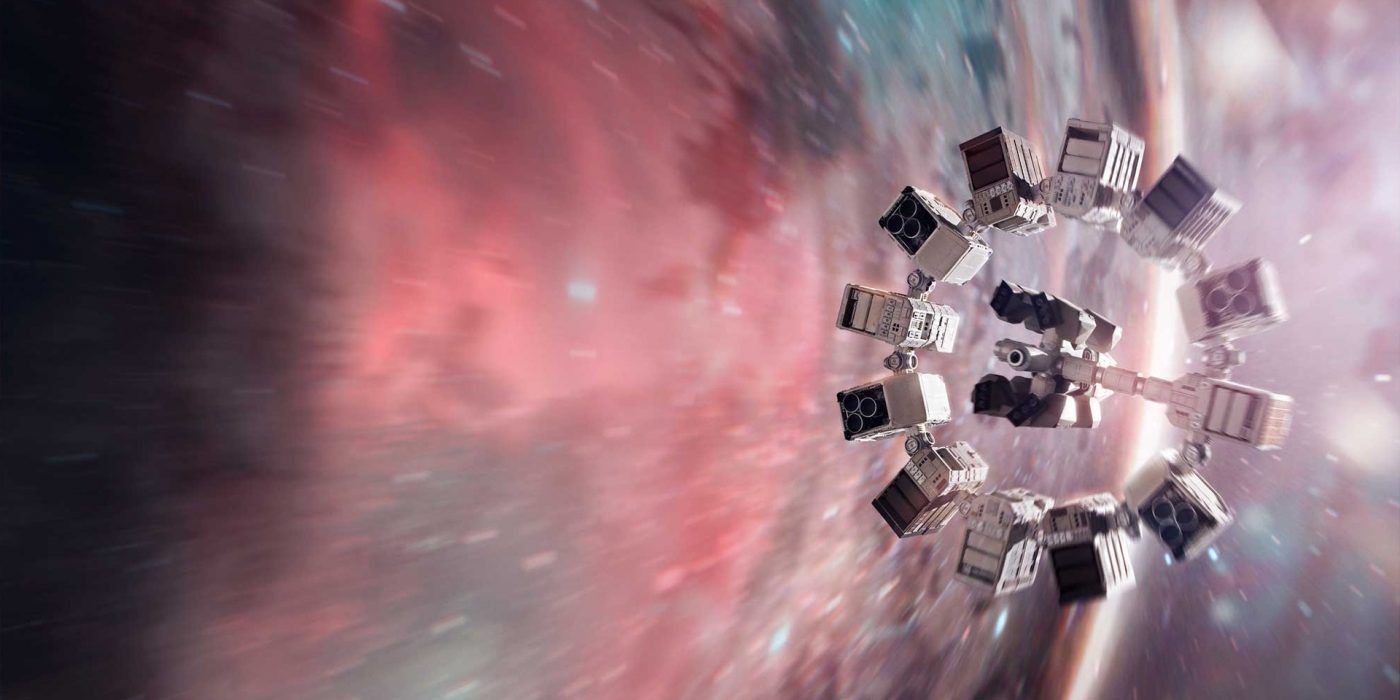
This line made a good one-liner to put into the trailer and explain the premise and stakes of the story with a few short words in a quick 30-second TV spot.
The movie has a huge, epic scale and tells the story of the astronauts who set off through a wormhole to find a planet that the human race to migrate to after they foolishly destroyed their home on Earth. It would be tough to sell this in a trailer or a clip featured on a talk show if it didn’t articulate it so well in one line of dialogue.
4 We Used To Look Up At The Sky And Wonder At Our Place In The Stars. Now, We Just Look Down And Worry About Our Place In The Dirt.
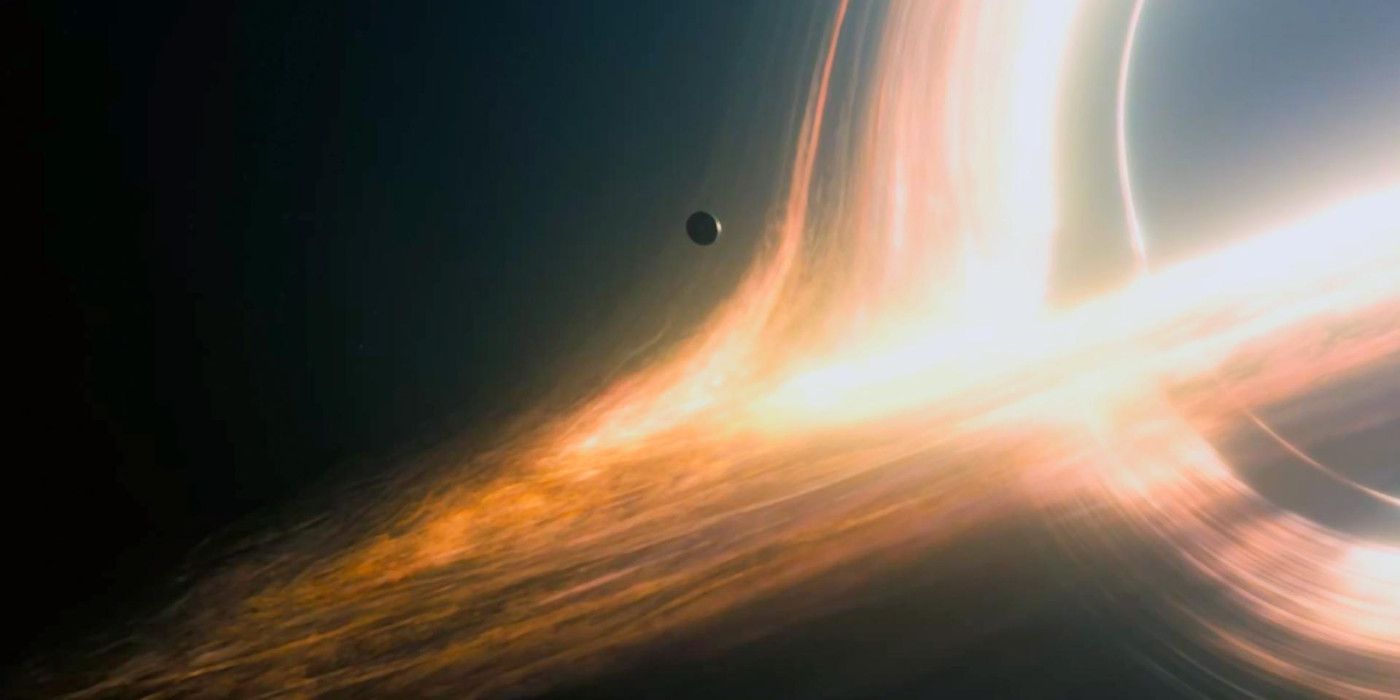
The human race moves from one extreme to the other pretty quickly. It was just a couple of decades ago that we figured out space travel and people around the world were watching Neil Armstrong and Buzz Aldrin go to the Moon on TV.
Modern times are very different and Cooper sums this up flawlessly when he mentions that humanity no longer has the luxury to dream of other planets, especially when Earth is gradually being ruined.
3 You’re Telling Me It Takes Two Numbers To Measure Your Own Ass But Only One To Measure My Son’s Future?
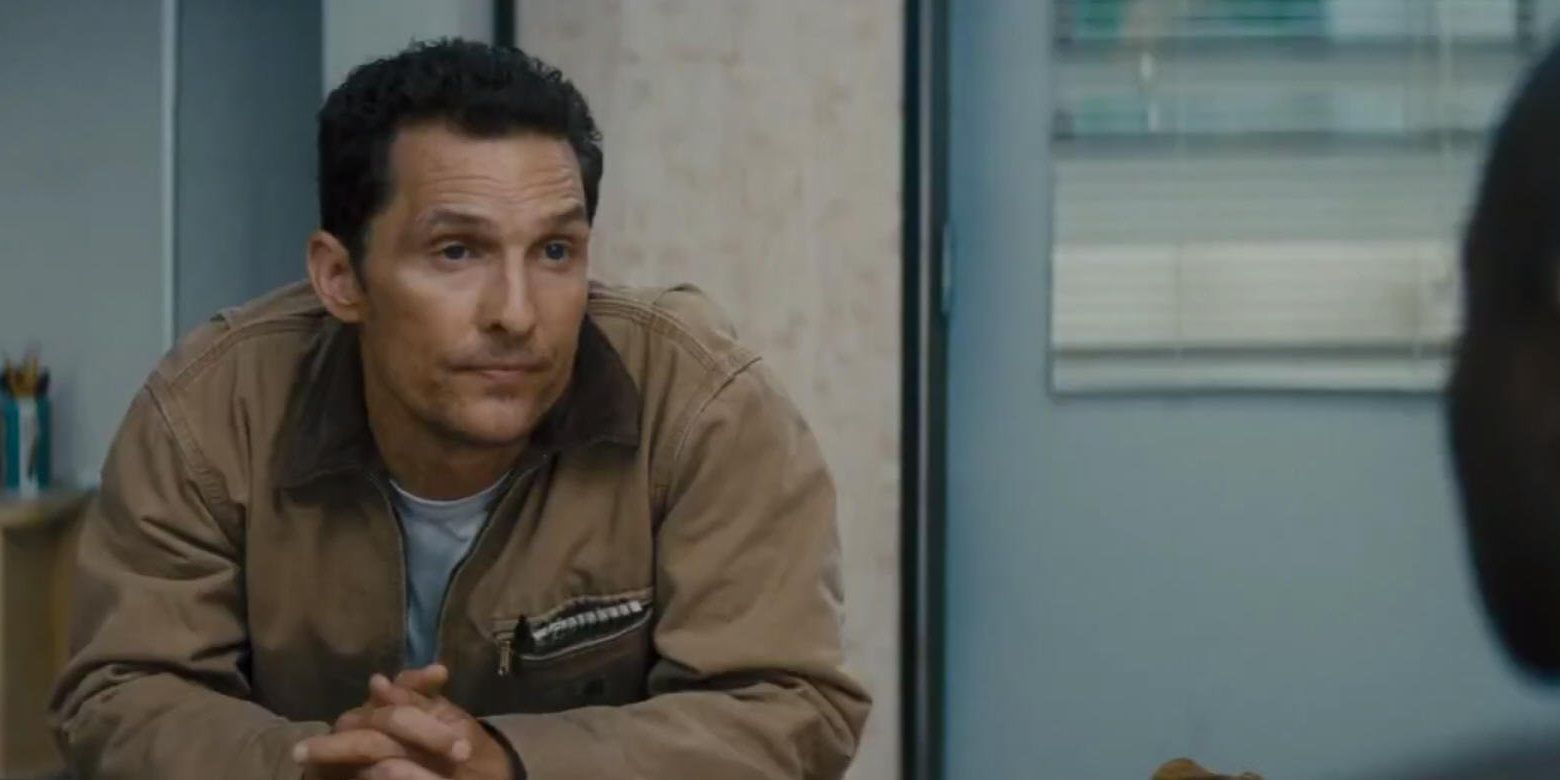
In an early scene set on Earth, we see Cooper meeting with the principal of his kids’ school, telling the principal, “You’re ruling out college for my son now? He’s fifteen.” The principal tries to defend this decision: “Tom’s score simply isn’t high enough.”
But then Cooper asks, “What’s your waistline? What 32, 33 inseam?” Confused, the principal says, “I’m not sure I see what you’re getting at,” and then Cooper really hammers his point home with this quote.
2 We’ve Always Defined Ourselves By The Ability To Overcome The Impossible.
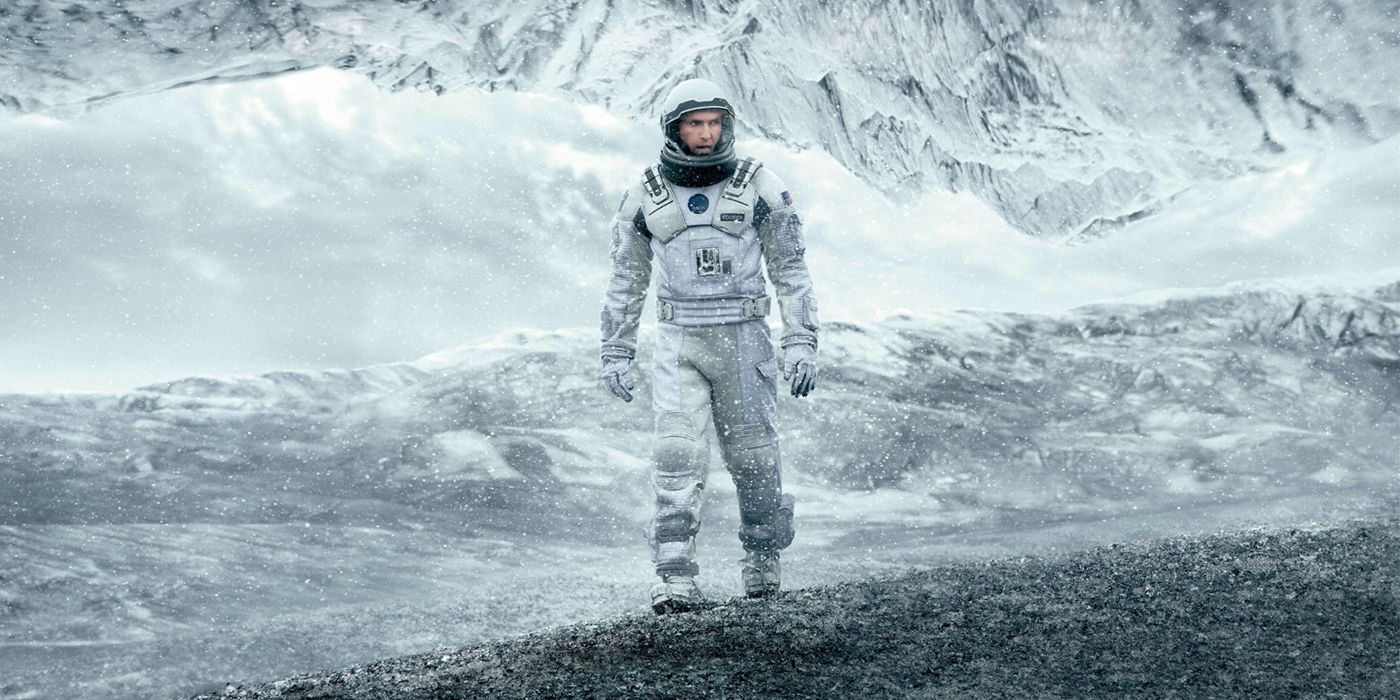
For all of its lofty sci-fi concepts and depictions of distant planets, Interstellar is really just a movie about humanity. Cooper explains the miracle of humanity in this great monologue focusing on the ways civilization has always strived to reach for the impossible and dream the unfathomable.
Along with mostly being backed by sound science, Interstellar taps into the core of what it means to be human. While all the brilliant visual effects are a sight to behold, the film's quieter scenes tend to leave an even greater impact. In the coldness of space, a touch of humanity goes a long way.
1 Love Is The One Thing we're capable of perceiving That Transcends dimensions of Time And Space.
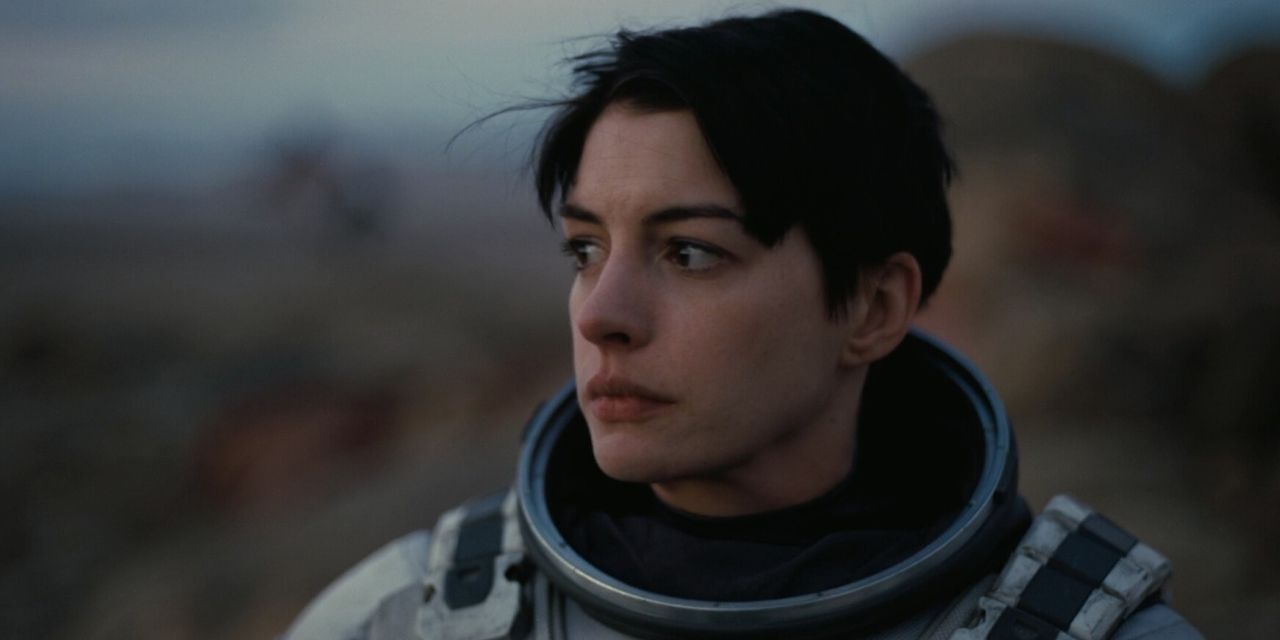
This line would come off as corny if it didn’t compliment the themes of the movie so well, or if it wasn’t delivered as beautifully as it is by Anne Hathaway in the role of Amelia Brand. She also adds, “Maybe we should trust that, even if we can’t yet understand it.”
This whole conversation between Cooper and Brand is interesting, actually, because it’s two scientific minds going toe to toe with the non-scientific concept of love and trying to understand it. While Brand approaches love from the perspective of an intangible force that must have meaning, Cooper views the emotion through its ability to impact society.
from ScreenRant - Feed https://ift.tt/38BxUo3

0 Comments